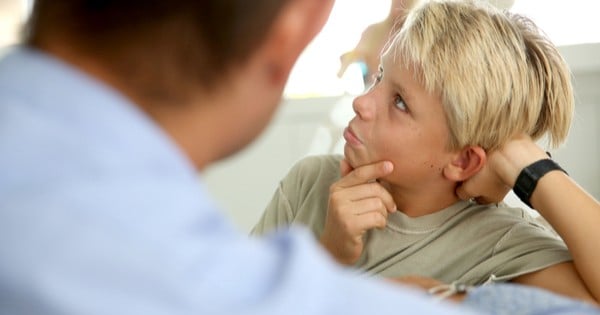The Importance of Play to Our Children’s Future

I have often thought that the future, by necessity, will need to incorporate elements of the past. Why not hang out laundry to dry and use the free energy of the wind and sun? Why not use a push mower — get a little exercise and mow the lawn. Better yet get rid of your grass and grow the native plants that were there in the first place.
When I hope that the future of childhood is more like the childhood of past, I’m not simply being nostalgic. It’s not about “when I was a kid…”
I’m worried.
We are seeing record rates of anxiety and depression in our children and not just from the pandemic. This trend has been continuing for decades.
I have always been an advocate for play. As an elementary school teacher I fought more than once to keep recess from being cut or shortened. But I didn’t fully understand its importance until I previewed the film Chasing Childhood to show through the Meaningful Movies Project. A climate activist at my core, I wonder how can we best prepare children for a climate changed future?
What did the film Chasing Childhood have to do with Climate Action? It’s become clear to me through all that I read about the climate and ecological crisis and all the groups I work with, that fighting climate change is ultimately not about the science — it’s about changing society. Changing the way we do things. Changing the path we’re on.
Chasing Childhood touches on one part of that change. How can we help our children become more resilient, more creative, less anxious and more independent? We need to stop trying to create perfect children and start letting go of our own need to manage their lives.
The film also highlights how fearful we have become. Parents have fear of their children getting hurt, fear of strangers abducting or harming them, fear that if they don’t do all this ‘preparation’ for their kids, their children won’t be perfect — won’t lead perfect lives.
Fear is perpetuated throughout society. It’s causing more harm than good. So how do we let go and allow children to take responsibility? How do we let go and allow them to play and have fun? How do we let children learn and practice the skills they need to live fulfilling, happy lives?
The skills children learn through play are the skills of the future
Already, 94% of businesses say they expect people to learn new skills on the job (as recently as 2018, only 65% said the same). The skills they most want to see? Critical thinking, problem-solving, active learning, resilience, stress tolerance, creativity, and flexibility. Handily enough, these are closely linked to the five super skills children develop naturally when they learn through play. And we don’t have time to waste: the Education Commission reports that 40% of employers say they’re already struggling to find people with those skills. Children won’t develop those skills if they’re just learning to repeat back facts. But by learning through play (in school and out), they can become adaptable, creative learners. We’ve published a paper that sets out the ways education systems can act now to stave off the growing skills crisis, and keep up with the rate of change in the wider world. (https://learningthroughplay.com/how-we-play/play-prepares-children-for-the-future-any-future)
After watching Chasing Childhood the first time, I read Free to Learn by Peter Gray, one of the people highlighted in the film. While I don’t agree with his overly harsh assessment of schools in the US (I was a teacher for 30 years and didn’t feel like I was a prison guard), I did learn a lot about play.
Skills Learned Through Different Types of Play
Physical skills– learning a new sport or activities involving gross motor skills help children become physically and mentally strong. They also release endorphins and boost mood, whatever your age. Physical activities also incorporate fine motor skills when planting in the garden or building with blocks.
Social skills– When children work together to solve problems, they learn to thrash out ideas, listen to others and even negotiate. Children aren’t required to stay in a game. Playing together builds empathy by helping children think about their teammates — who can leave if they aren’t having fun. Play requires collaboration, a skill that will help them do better at school and work, build friends for life and generally get along. It improves their own mental health and wellbeing, too.
Emotional skills– Children learn to get along with others and be aware of when their playmates are feeling happy, sad or lonely. By working together, they are more able to deal with frustration, remember lines for a play or realise they can’t be the star of every make-believe game. Play is also practice for dealing with the unpredictable or uncertain. Children often change the rules, as needed, to accomodate the age and skills of different players. These are skills they’ll need to be level-headed in a crisis or to cope with challenges in designing the next great innovation.
Cognitive skills– When learning is playful, children get so immersed in creating strategies and solving problems — they outperform those in less playful learning situations. Playful thinking is more flexible and will help them adapt to whatever new careers and life challenges the grown-up world presents.
Creative skills– We use creativity to write, tell, perform, compose, and craft ideas. But it’s also how we draw connections, make sense of abstract ideas, and test things out. Creative play puts children in charge of exploring ideas, relationships, spaces and problems. It sparks confidence and fosters natural curiosity. Creativity is also one of the most highly prized skills at work — one that business leaders keep saying is only getting more important.
American education still seems to be doubling down on assessments and teacher control of student learning. I have observed kindergarten classes spending the majority of their time focused on learning their numbers and letters with creativity discouranged because they are not doing the task at hand. I have observed children of all ages lacking coping skills — skills they are not honing through ample time playing with peers.
During our community discussion of the film, Andrea Keith, executive director of Let Grow, an organization founded by Lenore Skenazy author of Free Range Kids noted — the reason we are now having to teach social and emotional learning is because they’re not learning these coping skills the way we’ve done as humans through the milennia, through play.
Informal sports fill needs that aren’t being met
The informal, self directed way of playing baseball or any other game contains valuable lessons that formal, adult-directed games do not. There are five such lessons, among the most valuable that anyone can learn in life. 1) to keep the game going, you have to keep everyone happy. 2) Rules are modifiable and player-generated. 3) Conflicts are settled by argument, negotiation, and compromise. 4) There is no real difference between your team and the opposing team. 5) Playing well and having fun are really more important than winning. (Free to Learn)
I think of a standing volleyball game in a local park that has been going for 40 continuous summers. We meet at 6:30, form teams of about equal ability based on who shows up, do our best, praise good play and have fun. We let new players serve till they get it in. We let the 80 year old move up from the service line. We have fun and go out for a beer afterward. Only one player, and we all know who she is, can sometimes be a bad sport. It is a joyful experience for me to play volleyball on a Friday night. Unknowingly, we have been playing using the above lessons.
The Industrial Sports Complex
Just as education is feeding the behemoth testing industry, organized sports has become a million dollar industry. In 2019, an analysis from WinterGreen Research estimated the youth sports industry was worth $19.2 billion. In that same year, the NFL was “only” worth an estimated $15 billion!
In her book, “Take Back the Game: How Money and Mania Are Ruining Kids’ Sports — and Why It Matters,” journalist Linda Flanagan explains what she describes as the “ecosystem” of the kids’ sports industry including private leagues, the hotels for tournaments and the college athletic departments looking to recruit young athletes.
For one thing, increased sport specialization can be damaging to young bodies. In one study, researchers found that adolescents who spent more hours practicing a sport per week than their age (ie a 12 year old practicing for 13 or more hours) are 70% more likely to sustain an overuse injury.
It’s no wonder that most youth stop playing organized sports at about 13. If they aren’t good enough, they don’t get to play. For others, too much focus on competition leads to the sport losing its fun factor.
One concerning statistic surrounding the professionalization of youth sports is that kids from homes earning more than $100,000 are now twice as likely to play a team sport at least once a day as kids from families earning less than $25,000. The wealth gap rears its ugly face again. Children living in poverty have lost an outlet for physical play.
So how do we go ‘back to the future’ and gently guide kids toward forming their own teams — toward playing sports for fun? I don’t have the answer to that question yet. But as with play, I can’t do it on my own.
Andrea
February 2023
Quotes from Free to Learn: Why Unleashing the Instinct to Play Will Make Our Children Happier, More Self-Reliant, and Better Students for Life by Peter Gray that I found most thought provoking.
Free play is the means by which children learn to make friends, overcome their fears, solve their problems, and generally take control of their own lives. It is also the primary means by which children practice and acquire the physical and intellectual skills that are essential for success in the culture in which they are growing. Nothing that we do, no amount of toys we buy or ‘quality time’ or special training we give our children can compensate for the freedom we take away. The things that children learn through their own initiatives, in free play, cannot be taught in other ways.
Here we have a terrible irony. In the name of education we have increasingly deprived children of the time and freedom they need to educate themselves through their own means.
Play is not something one has to do; players are always free to quit. In social play, each player knows that anyone who feels unhappy will quit and if too many quit, the game ends. “To keep the game going, players must satisfy not only their own desires, but also those of the other players. The intense drive that children have to play with other children, is a powerful force for them to learn how to attend to others’ wishes and negotiate differences.
We have forgotten that children are designed by nature to learn through self-directed play and exploration, and so, more and more, we deprive them of freedom to learn, subjecting them instead to the tedious and painfully slow learning methods devised by those who run the schools.
Decline of empathy and the Rise of Narcissism “as discussed in chapter 1, the decline of children’s free play since about 1953 has been accompanied by a continuous rise in anxiety, depression, and feelings of helplessness in young people. Related to these findings, there has also been an increase in narcissism and decline in empathy. Narcissism refers to an inflated view of self, which tends to separate the self from others and prevent the formation of meaningful two-way relationships.
Andrea O’Ferrall is a former elementary school teacher and current climate activist. True to her roots as a teacher, she has been adapting Joanna Macy’s The Work That Reconnects for use in schools and visiting classrooms to promote awareness of the climate and ecological crisis. She also organizes and participates in Non-Violent Direct Action with Extinction Rebellion, supports legislative action through SSCAN and 350 Seattle. She also writes about it all in Medium. Her goal is to promote Active Hope through action to support climate solutions and systemic change.
—
This post was previously published on MEDIUM.COM.
***
From The Good Men Project on Medium
 What Does Being in Love and Loving Someone Really Mean? What Does Being in Love and Loving Someone Really Mean? |
 My 9-Year-Old Accidentally Explained Why His Mom Divorced Me My 9-Year-Old Accidentally Explained Why His Mom Divorced Me |
 The One Thing Men Want More Than Sex The One Thing Men Want More Than Sex |
 The Internal Struggle Men Battle in Silence The Internal Struggle Men Battle in Silence |
Join The Good Men Project as a Premium Member today.
All Premium Members get to view The Good Men Project with NO ADS.
A $50 annual membership gives you an all access pass. You can be a part of every call, group, class and community.
A $25 annual membership gives you access to one class, one Social Interest group and our online communities.
A $12 annual membership gives you access to our Friday calls with the publisher, our online community.
Register New Account
Log in if you wish to renew an existing subscription.
Need more info? A complete list of benefits is here.
—
Photo credit: iStock.com
The post The Importance of Play to Our Children’s Future appeared first on The Good Men Project.
